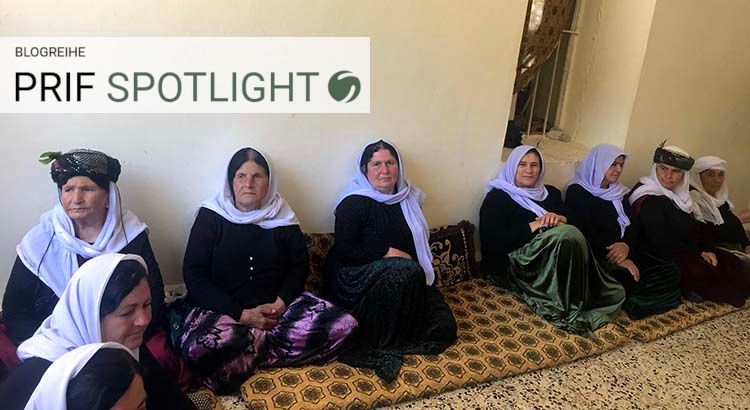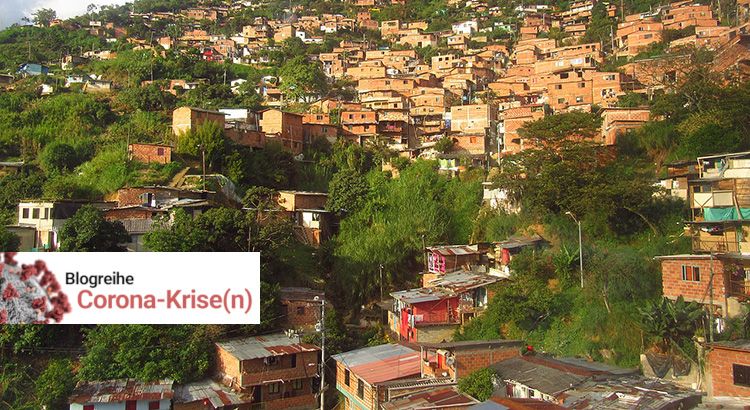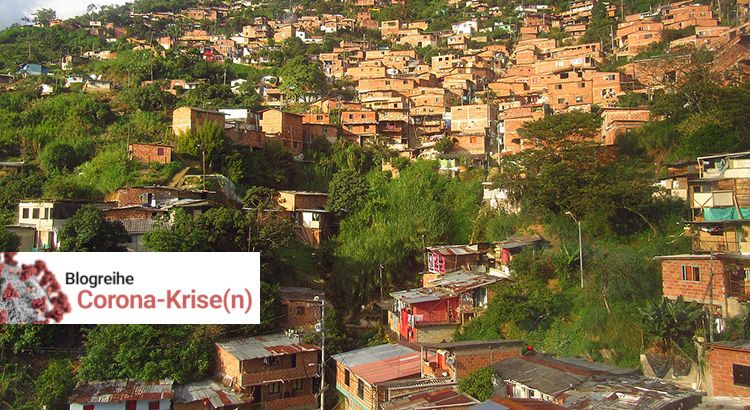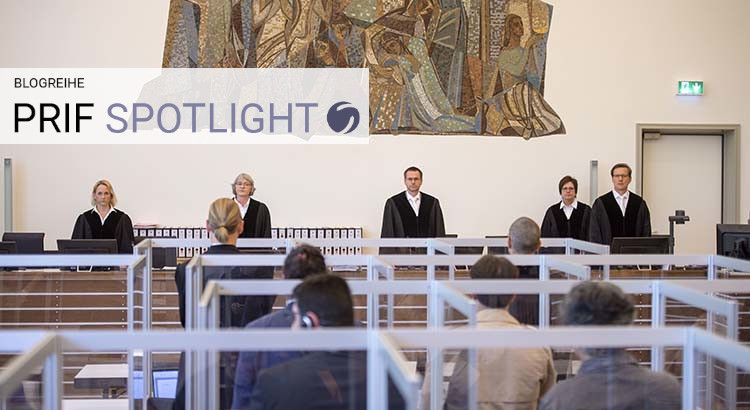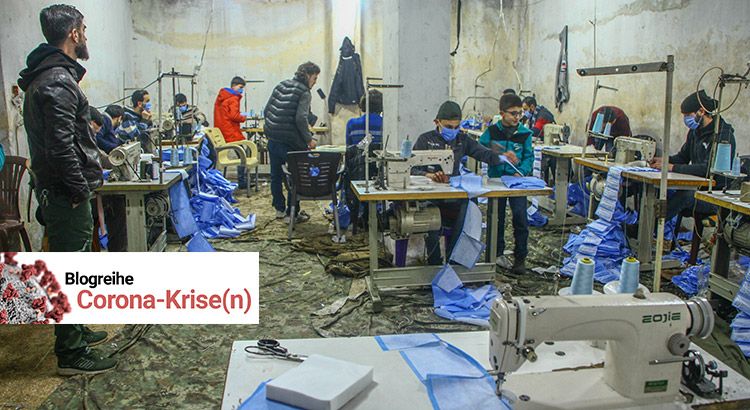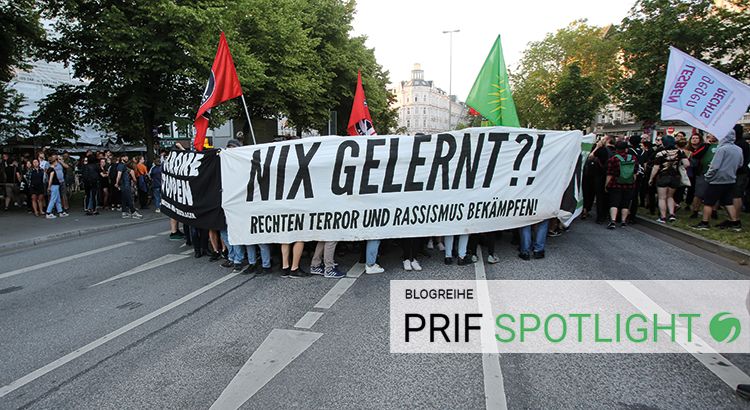Um das Thema Chemiewaffeneinsätze in Syrien ist es im letzten Jahr in den Medien ruhiger geworden. In Den Haag, dem Sitz der Organisation für das Verbot chemischer Waffen (OVCW), gab es dagegen hitzige Auseinandersetzungen um die Einrichtung eines Investigationsteams, das die Verantwortlichen für solche Einsätze identifizieren soll und eigentlich die internationale Chemiewaffenkontrolle stärkt. Allerdings verschärften sich darüber die ohnehin tiefen Spannungen zwischen den Befürwortern und Kritikern der Entscheidung – mit potenziell negativen Auswirkungen auf die Arbeit der OVCW. Im April hat das neue Investigationsteam nun seinen ersten Bericht vorgelegt.
Endangered Future: Yezidis in Post-Genocide Iraq and the Need for International Support
As the international memory of ISIS’ genocide against the Yezidi population of Şengal in Northern Iraq recedes, its victims have been left to languish increasingly hopelessly, in refugee camps with little realistic prospect of returning to their homes. Tens of thousands of displaced Yezidis remain dispersed across Northern Iraq, hundreds of kidnapped Yezidi girls and women are unaccounted for and the fates of many of their male relatives unknown. In the short term, there is an urgent need for international protection from further attacks, the recognition of a political status for Şengal and immediate aid for refugee camps to create the conditions for Yezidi genocide survivors to return, resettle and gain a sense of political stability and empowerment.
Se trata de estructuras, no de ayuda – Asentamientos informales y la desigualdad de la pandemia en Medellín, Colombia
En Colombia, el 25 de marzo se instaló una cuarentena nacional debido a la pandemia de la Corona. Pocos días antes, varias organizaciones no gubernamentales y comunitarias ya habían publicado una declaratoria con una alerta temprana a la alcaldía de Medellín - la segunda ciudad más grande de Colombia, premiada varias veces por su innovadora política urbana. En ese declaratoria, pidieron que se prestara especial atención a las personas que vivían en asentamientos informales y zonas periféricas: Las desigualdades existentes y las diversas formas de discriminación se exacerban debido a la creciente precarización de la informalidad a través de las medidas preventivas actuales. Los residentes de los barrios marginales se ven privados de los modos de sustento que han generado de forma independiente. Las intersecciones de las opresiones exponen a esas personas a riesgos mortales. Se necesita urgentemente un ingreso básico y protección de la salud.
It is About Structures, Not Aid – Informal Settlements and the Inequality of the Pandemic in Medellín, Colombia
In Colombia, a national quarantine due to the Corona pandemic was installed on March 25th. A few days earlier, several non-governmental and community-based organizations had already published an alert statement in the city of Medellín – the second largest city of Colombia, awarded multiple times for its innovative urban policy. In this statement, they called for special attention to people living in informal settlements and peripheral areas: Existing inequalities and various forms of discrimination are exacerbated by the increasing precarisation of informality through current preventive measures. Residents of marginalized neighbourhoods get deprived of livelihoods that they have built up independently. The intersections of oppressions expose those people to deadly risks. A basic income and health protection are urgently needed.
Syrische Folterer vor Gericht: Die partielle Rückkehr des universellen Rechts
Am 23. April 2020 begann in Koblenz ein Prozess, der weltweit Aufmerksamkeit auf sich zieht: Vor dem Oberlandesgericht müssen sich zwei Syrer verantworten, die an der systematischen Folter von Oppositionellen mitgewirkt haben sollen. Der Fall, über den in der Presse ausführlich berichtet wurde, fußt auf dem weltweit immer häufiger angewandten Weltrechtsprinzip. Welche Probleme die Anwendung des Prinzips mit sich bringt, wie berechtigt Kritik daran ist und wie das Koblenzer Verfahren vor diesem Hintergrund einzuordnen ist, beleuchtet dieses Spotlight.
From Russia with Love?! Putin and the Pandemic
For Russia the novel SARS-CoV-2 still seems to be the best of a bad lot, as the country still reports relatively low numbers of infected people. But, if coupled with other pre-existing problems (power transfer and economic hardships), the pandemic could exacerbate an already unstable situation and lead to new unpredictable foreign policy moves. Russia’s strategy in times of SARS-CoV-2 is most likely going to be threefold: further working on its global image by sending aid and offering assistance; shifting its focus from the near abroad to great power politics; and doubling up the ongoing information warfare if the first two do not bring immediate results.
Corona und die humanitäre Situation in Syrien: Die drohende Katastrophe in der Katastrophe
In der aktuellen Berichterstattung über die COVID-19-Pandemie wird kaum über das Schicksal derer berichtet, für die die Coronaviruskrise eine dramatische Verschlechterung ihrer ohnehin oft hoffnungslosen Situation bringen könnte: Vertriebene, Flüchtlinge, Menschen in Konfliktgebieten. Die Corona-Krise droht existierende humanitäre Krisen zu verschärfen. Ein Blick auf Nordsyrien zeigt, dass ein COVID-19-Ausbruch in solchen Situationen einerseits neue Konflikte hervorrufen und andererseits die COVID-19-Pandemie selbst weiter verschärfen könnte.
The Coronavirus as a Means to an End: Extremist Reinterpretations of the Pandemic
Various aspects of society and everyday life have become affected by the clampdown on the Coronavirus pandemic and the restrictions enforced to prevent it from spreading. While the spread of COVID-19 continues to be fought and researched under extreme pressure, many uncertainties remain regarding its origin and the social, political and economic consequences. These uncertainties are easily exploited by extremists such as right-wing and Islamist extremists. The spread of the Coronavirus is thus accompanied by the propagation of extremists’ discourses. Within a short period of time, they reach thousands of people – not only but especially via social media.
Lost in Transition? Putin’s Strategy for 2024
Speculations about “Транзит“ or transfer of power have circulated in the Russian mass media since Vladimir Putin got elected as the President of the Russian Federation for the fourth time in March 2018. The turbulent political events of the first weeks of 2020 shed some light on Putin’s strategy for his future. In case he chooses to leave the president’s chair, he will hardly be able to fully control the handover of power and will likely face some unintended consequences.
Evaluation der Extremismusprävention – Zur Gestaltung von Qualitätssicherung und Erhöhung der Wirksamkeit
Am 30. Oktober 2019 beschloss das Bundeskabinett ein Maßnahmenpaket zur Bekämpfung des Rechtsextremismus und der Hasskriminalität – nicht zuletzt in Reaktion auf den rechtsextremen Anschlag auf eine Synagoge in Halle (Saale) drei Wochen zuvor. Ein wesentlicher Aspekt darin ist die langfristige Stärkung der Qualität und Wirksamkeit der Präventionsmaßnahmen – von einschlägigen Ansätzen der politischen Bildung bis zur sicherheitsbehördlichen Arbeit. Stärker als bisher soll also die Evaluation mit Hilfe unterschiedlicher Ansätze und Maßnahmen systematisch mitgedacht werden. Es mangelt jedoch bislang an einer konkreten Strategie, wie diese Ziele erreicht werden können.
